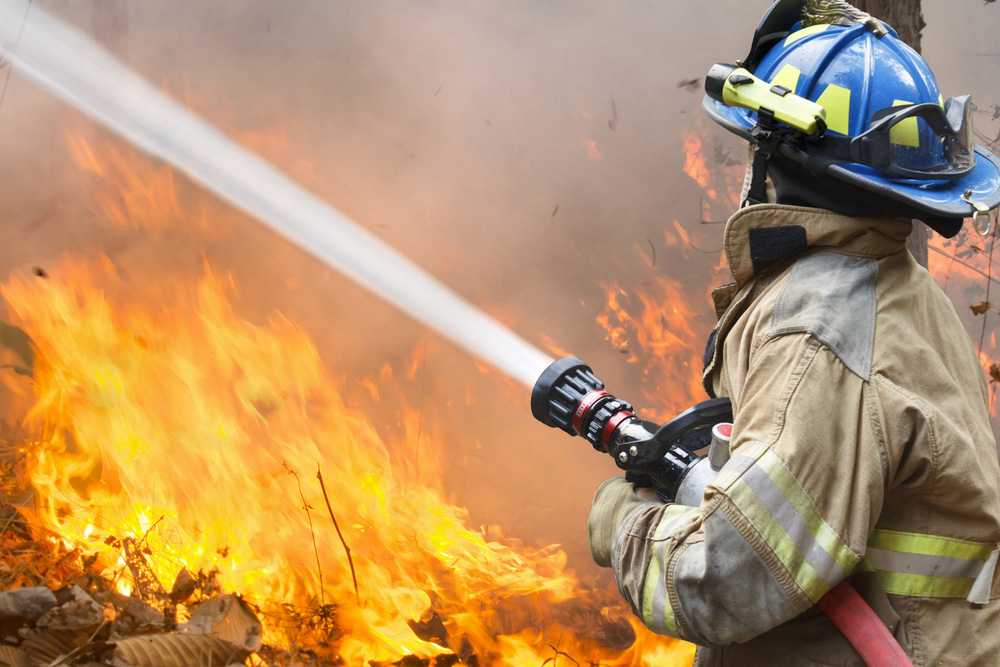
Dealing with the public and being calm under pressure are only two aspects of becoming a successful firefighter.
As a fireman, you will respond to emergencies and protect people, the environment, and property from accidents and disasters.
You will work closely with the local community to improve fire safety knowledge and aid in preventing fires and accidents.
You will act and advise on protecting life and property from fire and other hazards, including promoting and enforcing fire safety standards in public and commercial buildings.
You will continually gain and refresh your knowledge of the position via a series of lectures, exercises, practice drills, and training that are an essential and continuing component of the job.
Responsibilities
Throughout your apprenticeship, you may help:
- inspect and maintain equipment
- carry out practice drills and take part in training
- respond to emergency call-outs
- rescue people and animals from burning buildings and accident sites
- control and put out fires
- deal with bomb alerts and floods
- manage chemical or hazardous substance spills
- give presentations to schools and community groups
- inspect buildings to make sure they meet fire safety regulations.
Salary
There is a nationally-agreed salary structure for firefighters, as follows:
- The starting salary for an apprentice firefighter is £24,191. When fully trained, this rises to £32,244. Higher rates apply for overtime.
- Crew manager salaries range from £34,269 (development) to £35,747 (competent). Watch manager salaries range from £36,521 to £39,974.
- A station manager’s earning potential is between £41,578 and £45,861 plus overtime rates, subject to the officer’s level of competence.
- Further advancement to the role of group manager and then area manager attracts salaries of between £47,887 and £61,667, depending on the level of competence.
Working hours
Work hours are often unsocial hours. You’ll usually work 41 to 43 hours a week in shifts. Working evenings, weekends and bank holidays. Most firefighters work two-day shifts, two-night shifts, and then four days off.
Different duty systems are used by various services depending on their requirement. Paid overtime is provided when needed.
Working environment
You might be assigned to a fire station, a client’s home, or a client’s place of business.
Your office may be at a high elevation, physically and emotionally demanding, and cramped.
Wearing protective clothing, as well as using safety equipment and a uniform, may be necessary.
Qualifications
Qualifications you can achieve as an apprentice firefighter include:
- Level 3 Operational Firefighter – Entry requirements for this level include 5 GCSEs at grades 9 to 4 (A* to C), or equivalent, including English and maths, for an advanced apprenticeship. This qualification will take 24 months to complete.
You’ll need to be employed by a fire service to do this.
Skills
On a firefighter apprenticeship, you’ll learn:
- knowledge of public safety and security
- customer service skills
- the ability to accept criticism and work well under pressure
- patience and the ability to remain calm in stressful situations
- to be thorough and pay attention to detail
- sensitivity and understanding
- knowledge of training and how to present information
- the ability to work well with others
- to be able to carry out basic tasks on a computer or hand-held device.
Employers
Fire and rescue departments only employ firefighters when they need to replace those who retire or leave the service, and competition is fierce. Because each fire department recruits on a case-by-case basis, please get in touch with them personally. The current economic crisis, as well as public-sector layoffs, may influence the number of available jobs.
Private and public sector employers include:
- civil airport and port fire services
- forest industry
- Ministry of Defence (MoD)
- Royal Air Force (RAF).
Professional development
Typically, first firefighter training lasts between 12 and 18 weeks. It is usually held in a specially prepared training centre where you will learn basic firefighting procedures such as ladder safety, hose laying, and breathing equipment. Learning about fire safety and the importance of spreading the fire safety message across the community are also part of the training.
After completing the first training, you will be assigned to a probationary fire station, and your performance will be assessed regularly. Visit their websites to learn more about each fire and rescue service’s training programmes.
To maintain your competence levels, you will be required to engage in a CPD programme that includes lectures, exercises, practical training sessions, and other training throughout your career. In addition, you will be responsible for your skill improvement and physical conditioning.
Career prospects
Individual merit is employed to decide advancement, which relies on demonstrating skill in each role and potential via attendance at assessment and development centres.
There is a well-defined career path that offers great responsibility from the start. A typical career path for a firefighter is as follows:
- Crew manager
- Watch manager
- Station manager
- Group manager
- Area manager
- Brigade manager
- Chief fire officer.
